Company Details
geisinger
15,511
84,447
62
geisinger.org
100
GEI_2499040
Completed

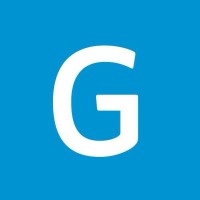
Geisinger Company CyberSecurity Posture
geisinger.orgGeisinger is among the nation’s leading providers of value-based care, serving 1.2 million people in urban and rural communities across Pennsylvania. Founded in 1915 by philanthropist Abigail Geisinger, the nonprofit system generates $10 billion in annual revenues across 126 care sites — including 10 hospital campuses — and Geisinger Health Plan, with more than half a million members in commercial and government plans. Geisinger College of Health Sciences educates more than 5,000 medical professionals annually and conducts more than 1,400 clinical research studies. With 26,000 employees, including 1,700 employed physicians, Geisinger is among Pennsylvania’s largest employers with an estimated economic impact of $15 billion to the state’s economy. On March 31, 2024, Geisinger became the first member of Risant Health, a new nonprofit charitable organization created to expand and accelerate value-based care across the country. For more information, visit geisinger.org/careers or connect with us on Facebook, Instagram, LinkedIn and Twitter.
Company Details
geisinger
15,511
84,447
62
geisinger.org
100
GEI_2499040
Completed
Between 600 and 649

 Geisinger Global Score (TPRM)
Geisinger Global Score (TPRM)XXXX

Description: Ryuk Ransomware Affiliate Extradited to U.S. After Global Cyberattacks In a coordinated international operation, a 33-year-old man linked to the Ryuk ransomware group was extradited to the U.S. from Ukraine on June 18, 2025. The suspect, arrested in Kyiv in April at the FBI’s request, specialized in gaining initial access to corporate networks and is accused of participating in attacks targeting companies across France, Norway, Germany, the Netherlands, Canada, and the U.S. Ukrainian cyber police, alongside the National Police and global law enforcement partners, launched the investigation in 2023 following a wave of ransomware incidents tied to the group. The extradition marks a significant step in disrupting Ryuk’s operations, which have long been associated with high-profile cyber extortion campaigns. The case underscores the persistent threat of ransomware gangs and the growing collaboration between nations to counter cybercrime. No further details on the suspect’s identity or the specific companies affected have been disclosed.
Description: A former employee of Nuance Communications (a Microsoft-owned IT services vendor) accessed Geisinger Health’s patient records without authorization two days after their employment termination on November 29, 2023. The breach exposed the personal and health information of over 1.3 million patients, including full names, dates of birth, addresses, medical record numbers, race, gender, phone numbers, facility abbreviations, Social Security numbers (SSNs), and health insurance details. Initially, Geisinger stated no financial or credit card data was compromised, but court documents later confirmed SSNs and sensitive medical information were exposed. The incident led to a $5 million class-action settlement, with affected patients eligible to file claims until March 2026. The former employee faces federal criminal charges for the unauthorized access, which occurred after law enforcement concluded its investigation. The breach severely undermined patient trust and triggered legal, financial, and reputational repercussions for Geisinger Health.
Description: A Pennsylvania district court approved a $5 million settlement for a 2023 data breach at Geisinger Health, involving a former Nuance Communications employee (Nuance is now owned by Microsoft). The breach exposed over 1 million patients' sensitive data, including names, dates of birth, addresses, medical record numbers, race, gender, phone numbers, admit/discharge codes, and facility abbreviations. The employee, terminated just two days before the incident, accessed and potentially exfiltrated the data, leading to criminal charges and an ongoing federal investigation. Notification to affected patients was delayed per law enforcement’s request. The breach underscored insider threat risks in healthcare, with the consolidated class-action lawsuit highlighting reputational, financial, and legal repercussions. The final approval hearing is set for March 2026, with claims submissions due shortly after.
Description: Geisinger was targeted in a data breach incident by a former employee in a non-permitted manner. The breach compromised the medical records and other personal information including patient names, date of birth, and other details of over 700 patients. The company immediately took strict actions and fired the employee and informed the affected patients to be alerted.
Description: Geisinger was targeted in a data breach incident that exposed 2,800 members and 220 employers Protected Health Information (PHI) in an unauthorized manner. Members of Geisinger Gold, GHP Family, or GHP Kids were unaffected by this incident. The attack compromised member name, date of birth, health insurance premium information, member identification number and smoking status. No medical treatment or financial information, such as social security number, was included. The company immediately took strict actions and informed the affected patients and employee to be alerted.


No incidents recorded for Geisinger in 2026.
No incidents recorded for Geisinger in 2026.
No incidents recorded for Geisinger in 2026.
Geisinger cyber incidents detection timeline including parent company and subsidiaries

Geisinger is among the nation’s leading providers of value-based care, serving 1.2 million people in urban and rural communities across Pennsylvania. Founded in 1915 by philanthropist Abigail Geisinger, the nonprofit system generates $10 billion in annual revenues across 126 care sites — including 10 hospital campuses — and Geisinger Health Plan, with more than half a million members in commercial and government plans. Geisinger College of Health Sciences educates more than 5,000 medical professionals annually and conducts more than 1,400 clinical research studies. With 26,000 employees, including 1,700 employed physicians, Geisinger is among Pennsylvania’s largest employers with an estimated economic impact of $15 billion to the state’s economy. On March 31, 2024, Geisinger became the first member of Risant Health, a new nonprofit charitable organization created to expand and accelerate value-based care across the country. For more information, visit geisinger.org/careers or connect with us on Facebook, Instagram, LinkedIn and Twitter.

From specializing in transplants and pediatric cancer to solving undiagnosed diseases, we know solving the most complex problems prepares us to solve any problem. We are committed to excellence in patient care, research, and medical education and training. We thrive on challenges, embrace collaborat
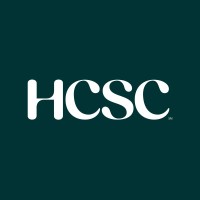
Health Care Service Corporation serves nearly 23 million people across the United States through its portfolio of health benefit solutions. HCSC provides health coverage options for employers large and small, individuals and families, and Medicare and Medicaid plans. HCSC also offers related health
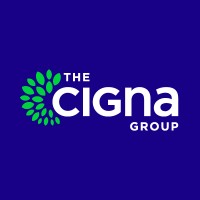
The Cigna Group is a global health company committed to creating a better future built on the vitality of every individual and every community. We relentlessly challenge ourselves to partner and innovate solutions for better health. The Cigna Group includes products and services marketed under Cig
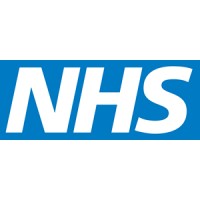
The NHS was launched in 1948. It was born out of a long-held ideal that good healthcare should be available to all, regardless of wealth – one of the NHS's core principles. With the exception of some charges, such as prescriptions, optical services and dental services, the NHS in England remains

Houston Methodist is one of the nation’s leading health systems and academic medical centers. The health system consists of eight hospitals: Houston Methodist Hospital, its flagship academic hospital in the Texas Medical Center, seven community hospitals and one long-term acute care hospital through
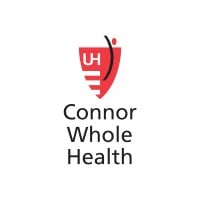
Integrative Medicine (IM) is an approach to healthcare that takes into account the whole person addressing the full range of physical, emotional, mental, social, spiritual, and environmental influences that affect an individual’s health. IM is informed by evidence, makes use of all appropriate thera
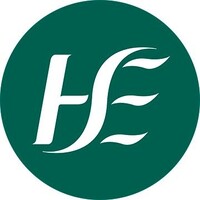
Our purpose is to provide safe, high quality health and personal social services to the population of Ireland. Our vision is a healthier Ireland with a high quality health service valued by all. Our Workforce The health service is the largest employer in the state with over 110,000 whole time equ

A Rede D’Or é a maior rede de saúde da América Latina. São 79 hospitais e mais de 60 clínicas oncológicas com presença nos estados de AL, BA, CE, DF, MA, MG, MS, PA, PB, PE, PR, RJ, SE, SP. Referência em qualidade técnica, a Rede D’Or atua em serviços complementares como banco de sangue, diális
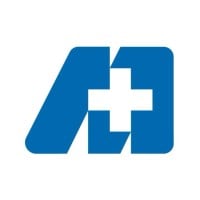
MultiCare’s roots in the Pacific Northwest go back to 1882, with the founding of Tacoma’s first hospital. Over the years, we’ve grown from a Tacoma-centric, hospital-based organization into the largest, community-based, locally governed health system in the state of Washington. Today, our comprehe
.png)
Geisinger Health and Microsoft-owned Nuance Communications reached a proposed $5 million settlement tied to a 2023 insider data breach.
The court approved a $5 million settlement in the cybersecurity class action, stating that impacted patients can file a claim through...
This month, we're highlighting 48 CIOs, CTOs, and CISOs taking on leadership roles in industries from healthcare to finance to technology.
In 2024, there were 14 data breaches involving more than 1 million healthcare records, including the biggest healthcare data breach of all time.
The marketing company and mailing vendor, Kaye-Smith Enterprises, has agreed to settle a class action lawsuit filed in response to a 2022 cyberattack and data...
Opmed.ai, a leading provider of AI-powered healthcare solutions, has announced the successful first results of the implementation of its …
Risant Health will make available a minimum of $1 billion in capital to Cone Health over the next five years to support investments in facilities, health...
A former employee at vendor Nuance Communications accessed patient data two days after being terminated, according to the health system.
Many health systems and healthcare companies have suffered cyberattacks, or they've been affected by a breach of a vendor in the first six...

Explore insights on cybersecurity incidents, risk posture, and Rankiteo's assessments.
The official website of Geisinger is https://www.geisinger.org/.
According to Rankiteo, Geisinger’s AI-generated cybersecurity score is 616, reflecting their Poor security posture.
According to Rankiteo, Geisinger currently holds 0 security badges, indicating that no recognized compliance certifications are currently verified for the organization.
According to Rankiteo, Geisinger has not been affected by any supply chain cyber incidents, and no incident IDs are currently listed for the organization.
According to Rankiteo, Geisinger is not certified under SOC 2 Type 1.
According to Rankiteo, Geisinger does not hold a SOC 2 Type 2 certification.
According to Rankiteo, Geisinger is not listed as GDPR compliant.
According to Rankiteo, Geisinger does not currently maintain PCI DSS compliance.
According to Rankiteo, Geisinger is not compliant with HIPAA regulations.
According to Rankiteo,Geisinger is not certified under ISO 27001, indicating the absence of a formally recognized information security management framework.
Geisinger operates primarily in the Hospitals and Health Care industry.
Geisinger employs approximately 15,511 people worldwide.
Geisinger presently has no subsidiaries across any sectors.
Geisinger’s official LinkedIn profile has approximately 84,447 followers.
Geisinger is classified under the NAICS code 62, which corresponds to Health Care and Social Assistance.
No, Geisinger does not have a profile on Crunchbase.
Yes, Geisinger maintains an official LinkedIn profile, which is actively utilized for branding and talent engagement, which can be accessed here: https://www.linkedin.com/company/geisinger.
As of January 21, 2026, Rankiteo reports that Geisinger has experienced 5 cybersecurity incidents.
Geisinger has an estimated 31,576 peer or competitor companies worldwide.
Incident Types: The types of cybersecurity incidents that have occurred include Breach and Cyber Attack.
Total Financial Loss: The total financial loss from these incidents is estimated to be $10 million.
Detection and Response: The company detects and responds to cybersecurity incidents through an containment measures with employee fired, and communication strategy with informed affected patients, and communication strategy with the company immediately took strict actions and informed the affected patients and employee to be alerted., and incident response plan activated with breach investigation, incident response plan activated with law enforcement involvement, and third party assistance with law enforcement, and and remediation measures with breach notifications sent to affected patients, remediation measures with class action settlement process, and communication strategy with public disclosure, communication strategy with patient notifications via mail, communication strategy with court-approved settlement communications, and incident response plan activated with yes (delayed per law enforcement request), and law enforcement notified with yes (federal investigation ongoing), and containment measures with termination of employee (pre-incident), containment measures with delayed notification per law enforcement, and recovery measures with patient notifications sent by nuance on behalf of geisinger, and communication strategy with class action settlement notifications, communication strategy with public disclosure via legal proceedings, and third party assistance with international law enforcement partners (fbi, ukrainian cyber police, national police), and law enforcement notified with yes..
Title: Geisinger Data Breach by Former Employee
Description: Geisinger was targeted in a data breach incident by a former employee in a non-permitted manner. The breach compromised the medical records and other personal information including patient names, date of birth, and other details of over 700 patients. The company immediately took strict actions and fired the employee and informed the affected patients to be alerted.
Type: Data Breach
Attack Vector: Insider Threat
Threat Actor: Former Employee
Title: Geisinger Data Breach
Description: Geisinger was targeted in a data breach incident that exposed 2,800 members and 220 employers Protected Health Information (PHI) in an unauthorized manner.
Type: Data Breach
Title: Geisinger Health and Nuance Communications Patient Data Breach (2023)
Description: A former Nuance Communications employee accessed Geisinger Health's patient records and personal information of over 1.3 million patients two days after their employment termination. The breach led to a $5 million class action settlement, with impacted patients able to file claims until mid-March 2026. Exposed data included names, dates of birth, SSNs, addresses, medical record numbers, health insurance details, and other sensitive information.
Type: data breach
Attack Vector: insider threatprivilege abuse
Threat Actor: former employee of Nuance Communications
Motivation: unauthorized data accesspotential financial gain (unconfirmed)malicious intent
Title: Geisinger Health and Nuance Communications Data Breach (2023)
Description: A former Nuance Communications employee accessed and potentially obtained sensitive patient information from Geisinger Health, impacting over 1 million individuals. The breach led to a $5 million class action settlement, with the employee facing criminal charges. The incident underscored the risks of insider threats in healthcare.
Date Detected: 2023-11
Type: Data Breach (Insider Threat)
Attack Vector: Insider Access (Former Employee)
Threat Actor: Former Nuance Employee
Motivation: Financial GainUnauthorized Data Access
Title: Ryuk Ransomware Initial Access Broker Extradited to U.S.
Description: A 33-year-old foreign man, a member of the Ryuk ransomware operation specializing in gaining initial access to corporate networks, was arrested in Kyiv in April 2025 and extradited to the United States on June 18. The suspect was involved in ransomware attacks on companies in France, Norway, Germany, the Netherlands, Canada, and the USA.
Date Publicly Disclosed: 2025-06-18
Type: Ransomware
Attack Vector: Initial Access Broker
Threat Actor: Ryuk Ransomware Operation
Motivation: Financial Gain
Common Attack Types: The most common types of attacks the company has faced is Breach.
Identification of Attack Vectors: The company identifies the attack vectors used in incidents through former employee's retained access credentials, Authorized internal access (former employee) and Corporate networks.

Data Compromised: Medical records, Patient names, Date of birth, Other personal information

Data Compromised: Member name, Date of birth, Health insurance premium information, Member identification number, Smoking status

Financial Loss: $5 million (settlement amount)
Data Compromised: Full names, Dates of birth, Social security numbers (ssns), Addresses, Admit/discharge/transfer codes, Medical record numbers, Race and gender information, Phone numbers, Facility name abbreviations, Health insurance information, Medical information
Systems Affected: Geisinger Health patient records system
Customer Complaints: ['class action lawsuit filed']
Brand Reputation Impact: negative publicityloss of patient trust
Legal Liabilities: $5 million settlementfederal charges against former employee
Identity Theft Risk: ['high (due to SSN exposure)']
Payment Information Risk: ['initially reported as not compromised, later confirmed as exposed (health insurance info)']

Financial Loss: $5 million (settlement)
Data Compromised: Names, Dates of birth, Addresses, Medical record numbers, Race, Gender, Phone numbers, Admit/discharge codes, Facility name abbreviations
Customer Complaints: Class action lawsuit filed
Brand Reputation Impact: Negative (publicized breach, legal action)
Legal Liabilities: $5 million settlement, criminal charges against former employee
Identity Theft Risk: High (PII exposed)
Average Financial Loss: The average financial loss per incident is $2.00 million.
Commonly Compromised Data Types: The types of data most commonly compromised in incidents are Medical Records, Personal Information, , Member Name, Date Of Birth, Health Insurance Premium Information, Member Identification Number, Smoking Status, , Personally Identifiable Information (Pii), Protected Health Information (Phi), Financial Information (Health Insurance Details), , Personally Identifiable Information (Pii), Protected Health Information (Phi) and .

Entity Name: Geisinger
Entity Type: Healthcare Provider
Industry: Healthcare
Customers Affected: 700

Entity Name: Geisinger
Entity Type: Healthcare Provider
Industry: Healthcare
Customers Affected: 2,800 members, 220 employers

Entity Name: Geisinger Health
Entity Type: healthcare system
Industry: healthcare
Location: Pennsylvania, USA
Customers Affected: 1.3 million patients

Entity Name: Nuance Communications (Microsoft subsidiary)
Entity Type: information technology services vendor
Industry: technology/healthcare IT

Entity Name: Geisinger Health
Entity Type: Healthcare Provider
Industry: Healthcare
Location: Pennsylvania, USA
Customers Affected: 1,000,000+ individuals

Entity Name: Nuance Communications (acquired by Microsoft in 2022)
Entity Type: Technology Vendor
Industry: AI/Speech Recognition
Location: USA

Containment Measures: Employee Fired
Communication Strategy: Informed Affected Patients

Communication Strategy: The company immediately took strict actions and informed the affected patients and employee to be alerted.

Incident Response Plan Activated: ['breach investigation', 'law enforcement involvement']
Third Party Assistance: Law Enforcement.
Remediation Measures: breach notifications sent to affected patientsclass action settlement process
Communication Strategy: public disclosurepatient notifications via mailcourt-approved settlement communications

Incident Response Plan Activated: Yes (delayed per law enforcement request)
Law Enforcement Notified: Yes (federal investigation ongoing)
Containment Measures: Termination of employee (pre-incident)Delayed notification per law enforcement
Recovery Measures: Patient notifications sent by Nuance on behalf of Geisinger
Communication Strategy: Class action settlement notificationsPublic disclosure via legal proceedings

Third Party Assistance: International law enforcement partners (FBI, Ukrainian cyber police, National Police)
Law Enforcement Notified: Yes
Incident Response Plan: The company's incident response plan is described as breach investigation, law enforcement involvement, , Yes (delayed per law enforcement request).
Third-Party Assistance: The company involves third-party assistance in incident response through law enforcement, , International law enforcement partners (FBI, Ukrainian cyber police, National Police).

Type of Data Compromised: Medical records, Personal information
Number of Records Exposed: 700
Personally Identifiable Information: Patient NamesDate of Birth

Type of Data Compromised: Member name, Date of birth, Health insurance premium information, Member identification number, Smoking status
Number of Records Exposed: 2,800 members, 220 employers
Personally Identifiable Information: member namedate of birthmember identification number

Type of Data Compromised: Personally identifiable information (pii), Protected health information (phi), Financial information (health insurance details)
Number of Records Exposed: 1.3 million
Sensitivity of Data: high (includes SSNs, medical records, and insurance info)
Data Exfiltration: confirmed (data accessed by unauthorized former employee)
Personally Identifiable Information: full namesSSNsdates of birthaddressesphone numbersmedical record numbersrace/gender info

Type of Data Compromised: Personally identifiable information (pii), Protected health information (phi)
Number of Records Exposed: 1,000,000+
Sensitivity of Data: High (medical and personal identifiers)
Data Exfiltration: Potential (accessed and possibly obtained)
Personally Identifiable Information: NamesDates of BirthAddressesPhone NumbersMedical Record Numbers
Prevention of Data Exfiltration: The company takes the following measures to prevent data exfiltration: breach notifications sent to affected patients, class action settlement process, .
Handling of PII Incidents: The company handles incidents involving personally identifiable information (PII) through by employee fired, termination of employee (pre-incident), delayed notification per law enforcement and .

Ransomware Strain: Ryuk
Data Recovery from Ransomware: The company recovers data encrypted by ransomware through Patient notifications sent by Nuance on behalf of Geisinger, .

Legal Actions: class action lawsuit, federal charges against former employee,
Regulatory Notifications: breach notifications sent to affected individuals

Regulations Violated: HIPAA (likely), State data breach laws,
Fines Imposed: $5 million (settlement, not regulatory fine)
Legal Actions: Class action lawsuit, Criminal charges against former employee,

Legal Actions: Extradition to U.S. for prosecution
Ensuring Regulatory Compliance: The company ensures compliance with regulatory requirements through class action lawsuit, federal charges against former employee, , Class action lawsuit, Criminal charges against former employee, , Extradition to U.S. for prosecution.

Lessons Learned: Insider threats pose significant risks in healthcare; timely termination and access revocation are critical. Delayed breach notifications can complicate legal and reputational responses.

Recommendations: Enhance insider threat detection programs, Implement stricter access controls for sensitive data, Conduct regular audits of employee access to PHI/PII, Establish clear protocols for breach notifications balancing legal and law enforcement requirementsEnhance insider threat detection programs, Implement stricter access controls for sensitive data, Conduct regular audits of employee access to PHI/PII, Establish clear protocols for breach notifications balancing legal and law enforcement requirementsEnhance insider threat detection programs, Implement stricter access controls for sensitive data, Conduct regular audits of employee access to PHI/PII, Establish clear protocols for breach notifications balancing legal and law enforcement requirementsEnhance insider threat detection programs, Implement stricter access controls for sensitive data, Conduct regular audits of employee access to PHI/PII, Establish clear protocols for breach notifications balancing legal and law enforcement requirements
Key Lessons Learned: The key lessons learned from past incidents are Insider threats pose significant risks in healthcare; timely termination and access revocation are critical. Delayed breach notifications can complicate legal and reputational responses.

Source: Healthcare IT News

Source: Pennsylvania Court documents

Source: HealthITSecurity (Jill McKeon)

Source: National Police of Ukraine
URL: https://databreaches.net/feed/
Date Accessed: 2025-06-18
Additional Resources: Stakeholders can find additional resources on cybersecurity best practices at and Source: Healthcare IT News, and Source: Pennsylvania Court documents, and Source: HealthITSecurity (Jill McKeon), and Source: National Police of UkraineUrl: https://databreaches.net/feed/Date Accessed: 2025-06-18, and Source: DataBreaches.netUrl: https://databreaches.netDate Accessed: 2025-06-18.

Investigation Status: completed (law enforcement investigation concluded; settlement approved)

Investigation Status: Ongoing (final approval hearing scheduled for 2026-03-16)

Investigation Status: Ongoing (suspect extradited to U.S.)
Communication of Investigation Status: The company communicates the status of incident investigations to stakeholders through Informed Affected Patients, The company immediately took strict actions and informed the affected patients and employee to be alerted., Public Disclosure, Patient Notifications Via Mail, Court-Approved Settlement Communications, Class Action Settlement Notifications and Public Disclosure Via Legal Proceedings.

Customer Advisories: Informed Affected Patients

Customer Advisories: The company immediately took strict actions and informed the affected patients and employee to be alerted.

Stakeholder Advisories: Court-Approved Settlement Notices, Patient Claim Filing Instructions.
Customer Advisories: breach notification letters mailed to affected patients

Stakeholder Advisories: Class Action Settlement Notices, Federal Investigation Updates.
Customer Advisories: Breach notifications sent to impacted individuals (delayed)
Advisories Provided: The company provides the following advisories to stakeholders and customers following an incident: were Informed Affected Patients, The company immediately took strict actions and informed the affected patients and employee to be alerted., Court-Approved Settlement Notices, Patient Claim Filing Instructions, Breach Notification Letters Mailed To Affected Patients, , Class Action Settlement Notices, Federal Investigation Updates, Breach Notifications Sent To Impacted Individuals (Delayed) and .

Entry Point: Former Employee'S Retained Access Credentials,
High Value Targets: Patient Records, Pii/Phi Data,
Data Sold on Dark Web: Patient Records, Pii/Phi Data,

Entry Point: Authorized internal access (former employee)
High Value Targets: Patient Phi/Pii,
Data Sold on Dark Web: Patient Phi/Pii,

Entry Point: Corporate networks

Root Causes: Insufficient Access Revocation For Terminated Employees, Lack Of Monitoring For Unauthorized Access,

Root Causes: Insufficient Controls To Prevent Unauthorized Data Access By Terminated Employees, Delayed Breach Notification Due To Law Enforcement Request,
Corrective Actions: $5 Million Settlement For Affected Individuals, Criminal Prosecution Of Responsible Party,
Post-Incident Analysis Process: The company's process for conducting post-incident analysis is described as Law Enforcement, , International law enforcement partners (FBI, Ukrainian cyber police, National Police).
Corrective Actions Taken: The company has taken the following corrective actions based on post-incident analysis: $5 Million Settlement For Affected Individuals, Criminal Prosecution Of Responsible Party, .
Last Attacking Group: The attacking group in the last incident were an Former Employee, former employee of Nuance Communications, Former Nuance Employee and Ryuk Ransomware Operation.
Most Recent Incident Detected: The most recent incident detected was on 2023-11.
Most Recent Incident Publicly Disclosed: The most recent incident publicly disclosed was on 2025-06-18.
Most Significant Data Compromised: The most significant data compromised in an incident were Medical Records, Patient Names, Date of Birth, Other Personal Information, , member name, date of birth, health insurance premium information, member identification number, smoking status, , full names, dates of birth, Social Security numbers (SSNs), addresses, admit/discharge/transfer codes, medical record numbers, race and gender information, phone numbers, facility name abbreviations, health insurance information, medical information, , Names, Dates of Birth, Addresses, Medical Record Numbers, Race, Gender, Phone Numbers, Admit/Discharge Codes, Facility Name Abbreviations and .
Most Significant System Affected: The most significant system affected in an incident was Geisinger Health patient records system.
Third-Party Assistance in Most Recent Incident: The third-party assistance involved in the most recent incident was law enforcement, , International law enforcement partners (FBI, Ukrainian cyber police, National Police).
Containment Measures in Most Recent Incident: The containment measures taken in the most recent incident were Employee Fired and Termination of employee (pre-incident)Delayed notification per law enforcement.
Most Sensitive Data Compromised: The most sensitive data compromised in a breach were admit/discharge/transfer codes, Names, dates of birth, Other Personal Information, medical information, Phone Numbers, Addresses, Date of Birth, Admit/Discharge Codes, Facility Name Abbreviations, full names, race and gender information, health insurance information, addresses, member identification number, smoking status, facility name abbreviations, member name, Dates of Birth, date of birth, health insurance premium information, Social Security numbers (SSNs), Medical Record Numbers, Race, Gender, Patient Names, Medical Records, phone numbers and medical record numbers.
Number of Records Exposed in Most Significant Breach: The number of records exposed in the most significant breach was 2.3M.
Highest Fine Imposed: The highest fine imposed for a regulatory violation was $5 million (settlement, not regulatory fine).
Most Significant Legal Action: The most significant legal action taken for a regulatory violation was class action lawsuit, federal charges against former employee, , Class action lawsuit, Criminal charges against former employee, , Extradition to U.S. for prosecution.
Most Significant Lesson Learned: The most significant lesson learned from past incidents was Insider threats pose significant risks in healthcare; timely termination and access revocation are critical. Delayed breach notifications can complicate legal and reputational responses.
Most Significant Recommendation Implemented: The most significant recommendation implemented to improve cybersecurity was Implement stricter access controls for sensitive data, Conduct regular audits of employee access to PHI/PII, Establish clear protocols for breach notifications balancing legal and law enforcement requirements and Enhance insider threat detection programs.
Most Recent Source: The most recent source of information about an incident are HealthITSecurity (Jill McKeon), DataBreaches.net, Pennsylvania Court documents, Healthcare IT News and National Police of Ukraine.
Most Recent URL for Additional Resources: The most recent URL for additional resources on cybersecurity best practices is https://databreaches.net/feed/, https://databreaches.net .
Current Status of Most Recent Investigation: The current status of the most recent investigation is completed (law enforcement investigation concluded; settlement approved).
Most Recent Stakeholder Advisory: The most recent stakeholder advisory issued was court-approved settlement notices, patient claim filing instructions, Class action settlement notices, Federal investigation updates, .
Most Recent Customer Advisory: The most recent customer advisory issued were an Informed Affected Patients, The company immediately took strict actions and informed the affected patients and employee to be alerted., breach notification letters mailed to affected patients and Breach notifications sent to impacted individuals (delayed).
Most Recent Entry Point: The most recent entry point used by an initial access broker were an Authorized internal access (former employee) and Corporate networks.
Most Significant Root Cause: The most significant root cause identified in post-incident analysis was insufficient access revocation for terminated employeeslack of monitoring for unauthorized access, Insufficient controls to prevent unauthorized data access by terminated employeesDelayed breach notification due to law enforcement request.
Most Significant Corrective Action: The most significant corrective action taken based on post-incident analysis was $5 million settlement for affected individualsCriminal prosecution of responsible party.
.png)
SummaryA command injection vulnerability (CWE-78) has been found to exist in the `wrangler pages deploy` command. The issue occurs because the `--commit-hash` parameter is passed directly to a shell command without proper validation or sanitization, allowing an attacker with control of `--commit-hash` to execute arbitrary commands on the system running Wrangler. Root causeThe commitHash variable, derived from user input via the --commit-hash CLI argument, is interpolated directly into a shell command using template literals (e.g., execSync(`git show -s --format=%B ${commitHash}`)). Shell metacharacters are interpreted by the shell, enabling command execution. ImpactThis vulnerability is generally hard to exploit, as it requires --commit-hash to be attacker controlled. The vulnerability primarily affects CI/CD environments where `wrangler pages deploy` is used in automated pipelines and the --commit-hash parameter is populated from external, potentially untrusted sources. An attacker could exploit this to: * Run any shell command. * Exfiltrate environment variables. * Compromise the CI runner to install backdoors or modify build artifacts. Credits Disclosed responsibly by kny4hacker. Mitigation * Wrangler v4 users are requested to upgrade to Wrangler v4.59.1 or higher. * Wrangler v3 users are requested to upgrade to Wrangler v3.114.17 or higher. * Users on Wrangler v2 (EOL) should upgrade to a supported major version.
Vulnerability in the Oracle VM VirtualBox product of Oracle Virtualization (component: Core). Supported versions that are affected are 7.1.14 and 7.2.4. Easily exploitable vulnerability allows high privileged attacker with logon to the infrastructure where Oracle VM VirtualBox executes to compromise Oracle VM VirtualBox. While the vulnerability is in Oracle VM VirtualBox, attacks may significantly impact additional products (scope change). Successful attacks of this vulnerability can result in takeover of Oracle VM VirtualBox. CVSS 3.1 Base Score 8.2 (Confidentiality, Integrity and Availability impacts). CVSS Vector: (CVSS:3.1/AV:L/AC:L/PR:H/UI:N/S:C/C:H/I:H/A:H).
Vulnerability in the Oracle VM VirtualBox product of Oracle Virtualization (component: Core). Supported versions that are affected are 7.1.14 and 7.2.4. Easily exploitable vulnerability allows high privileged attacker with logon to the infrastructure where Oracle VM VirtualBox executes to compromise Oracle VM VirtualBox. While the vulnerability is in Oracle VM VirtualBox, attacks may significantly impact additional products (scope change). Successful attacks of this vulnerability can result in unauthorized creation, deletion or modification access to critical data or all Oracle VM VirtualBox accessible data as well as unauthorized access to critical data or complete access to all Oracle VM VirtualBox accessible data and unauthorized ability to cause a partial denial of service (partial DOS) of Oracle VM VirtualBox. CVSS 3.1 Base Score 8.1 (Confidentiality, Integrity and Availability impacts). CVSS Vector: (CVSS:3.1/AV:L/AC:L/PR:H/UI:N/S:C/C:H/I:H/A:L).
Vulnerability in the Oracle VM VirtualBox product of Oracle Virtualization (component: Core). Supported versions that are affected are 7.1.14 and 7.2.4. Easily exploitable vulnerability allows high privileged attacker with logon to the infrastructure where Oracle VM VirtualBox executes to compromise Oracle VM VirtualBox. While the vulnerability is in Oracle VM VirtualBox, attacks may significantly impact additional products (scope change). Successful attacks of this vulnerability can result in takeover of Oracle VM VirtualBox. CVSS 3.1 Base Score 8.2 (Confidentiality, Integrity and Availability impacts). CVSS Vector: (CVSS:3.1/AV:L/AC:L/PR:H/UI:N/S:C/C:H/I:H/A:H).
Vulnerability in the Oracle VM VirtualBox product of Oracle Virtualization (component: Core). Supported versions that are affected are 7.1.14 and 7.2.4. Easily exploitable vulnerability allows high privileged attacker with logon to the infrastructure where Oracle VM VirtualBox executes to compromise Oracle VM VirtualBox. While the vulnerability is in Oracle VM VirtualBox, attacks may significantly impact additional products (scope change). Successful attacks of this vulnerability can result in takeover of Oracle VM VirtualBox. CVSS 3.1 Base Score 8.2 (Confidentiality, Integrity and Availability impacts). CVSS Vector: (CVSS:3.1/AV:L/AC:L/PR:H/UI:N/S:C/C:H/I:H/A:H).

Get company history
















Every week, Rankiteo analyzes billions of signals to give organizations a sharper, faster view of emerging risks. With deeper, more actionable intelligence at their fingertips, security teams can outpace threat actors, respond instantly to Zero-Day attacks, and dramatically shrink their risk exposure window.
Identify exposed access points, detect misconfigured SSL certificates, and uncover vulnerabilities across the network infrastructure.
Gain visibility into the software components used within an organization to detect vulnerabilities, manage risk, and ensure supply chain security.
Monitor and manage all IT assets and their configurations to ensure accurate, real-time visibility across the company's technology environment.
Leverage real-time insights on active threats, malware campaigns, and emerging vulnerabilities to proactively defend against evolving cyberattacks.




